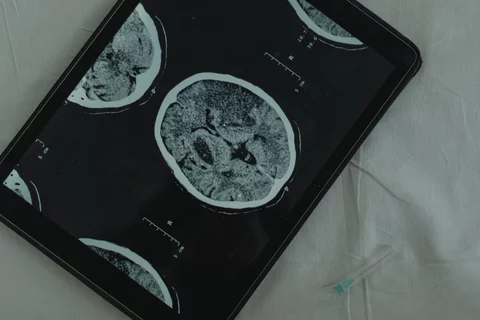UCLA researchers determine toxicity levels of Alzheimer's clusters in brain

Findings provide target for new classes of therapeutic drugs
Scientists have long suspected that Alzheimer’s disease is caused by plaques formed when the small protein amyloid-beta (Aß) binds to itself in clusters and undergoes a chemical change, creating protein deposits in the brain.
However, recent studies have suggested it is not the plaques that cause Alzheimer’s but the small, grape-like clusters of Aß.